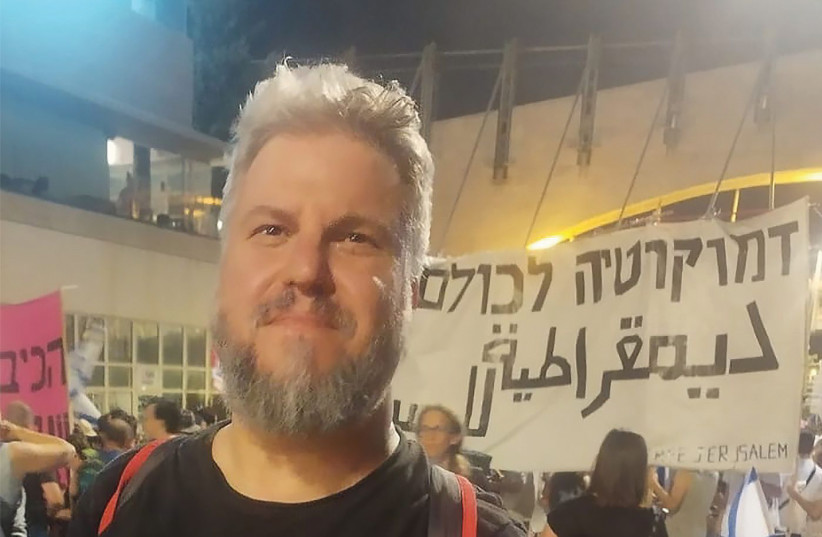The Israeli artistic community banded together over the weekend in a firm response letter denouncing a public condemnation of Israel led by major American and international art magazines on October 19.
Key leading art and culture publications, among which are Artforum, e-flux, The Art Newspaper, and Hyperallergic, published in tandem last Thursday an open letter from the art community, addressed to cultural organizations worldwide, in which Israel was accused of committing crimes against humanity and war crimes – both in the current war between Israel and Hamas and prior to the beginning of this conflict.
“We, the undersigned, reject violence against all civilians, regardless of their identity, and we call for ending the root cause of violence: oppression and the occupation. We stand in solidarity with the Palestinian people,” reads the letter, which was signed by thousands of artists, theoreticians, and intellectuals from around the world. Some of the key figures who have signed the letter include iconic US photographer Nan Goldin, the influential American philosopher and gender studies scholar Judith Butler, English musician Brian Eno, Israeli author and theorist Ariella Azoulay, groundbreaking conceptual American artist Martha Rosler, and many others.
The letter, which accuses Israel of committing genocide against the Palestinians and urges policymakers and cultural institutions to demand that their governments call for a ceasefire, completely omits any mention of the horrors committed by Hamas terrorists against Israeli civilians in Gaza-border communities on October 7. It also fails to mention the fact that 220 Israelis and foreign nationals are currently held hostage by Hamas in the Gaza Strip, a war crime in and of itself.
A group of Israeli artists, writers, activists, and educators decided to respond to the one-sided letter by composing a text of their own. The individuals behind the response are the editorial team of the Israeli art journal Erev Rav, led by founding editors Ronen Eidelman and Yonatan Amir.

The rebuttal
Their rebuttal, which has circulated among the thousands of members of the Israeli art community and has also reached hundreds of Jewish and non-Jewish art world officials who have signed it, has garnered massive attention from the moment it was published on Erev Rav’s website. It has also spread to social media networks such as Instagram, where it has been reposted thousands of times.
“As members of the Israeli Art community and political activists who are involved in the protest movement against the occupation, we’re utterly disgusted by the open letter... that letter is signed by people we believe are our colleagues, friends, and comrades, individuals with whom we shared many ideals added to the already deep sadness, fear, and despair that we are already in since October 7th,” their letter reads.
“The unfortunate letter… is a stain of hypocrisy and a total lack of moral judgment by those who claim to represent the art world. It’s not because of what’s in it (which we can somewhat agree with) but because of what it lacks,” they go on to explain. “To delve into the details of Gaza and then make a general statement that we condemn violence from all sides? Really?... Yes, we accept calls for ending the violence... but not by ignoring the rights of all who live in Israel,” they go to implore. “It’s as if you’re dehumanizing all of us, the 9 million people who have a right to exist.”
Erev Rav co-founding editor Eidelman told The Jerusalem Post that he was moved to write the letter after seeing “friends and colleagues sharing the original letter by Art Forum and all the other magazines. I read it and I was in shock and hurt. It was so frustrating. In the beginning, I just wanted to ignore it, but I thought it was important to deal with it. It’s important to mention that our letter was a collaborative effort, and remains one as many different people joined, signed it, and acted to distribute it.”
Eidelman shares that numerous people residing overseas reached out to his publication to thank them for publishing the letter.
“Many people are thanking us and saying it’s a voice they were afraid to sound.”
Asked why the discussion taking place on a cultural front should matter at all, Eidelman says that “the war is also a war of information, it’s a war of narratives.
“Someone told me that our letter represents only one kind of response, but that Israel should show the world a united front. I think that this is tactically wrong. We are not an Israeli advocacy group, we’re an art journal and artists, and it’s important that we show that there are many different voices here. We don’t agree on everything, but our power is that we do have critical art here, we have a culture that develops through discussion and sometimes through disagreement. What we’re fighting for is a free society.”
